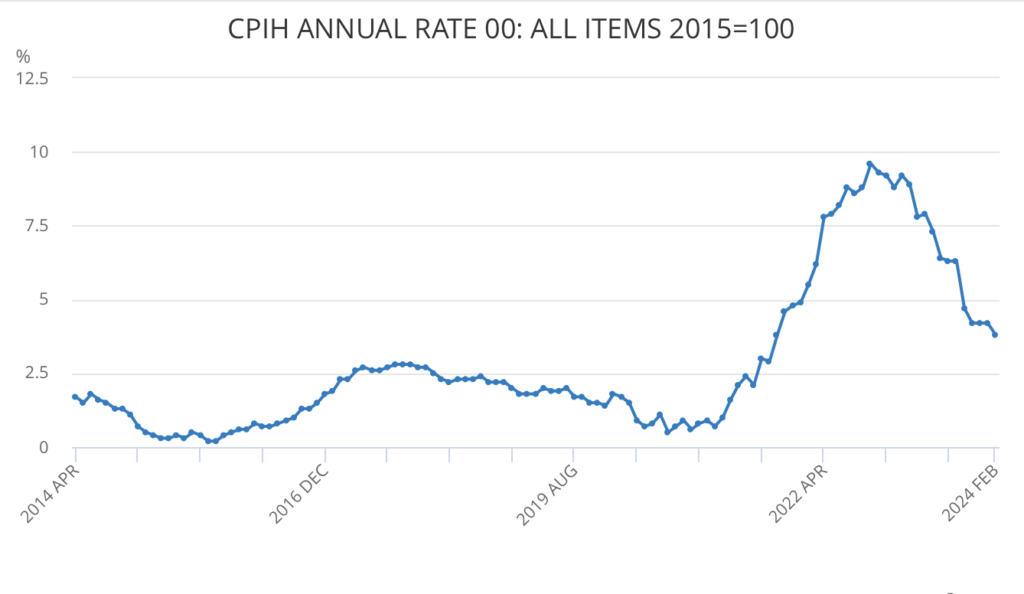It’s no secret that retention rates are on the decline. The effect of lockdowns and the introduction of hybrid working means that more people are reconsidering their options when it comes to the structure of their careers. In addition, it has had a lasting effect on the A-level and GCSE students who were affected. In the midst of enduring talent and labour shortage, workplaces nationwide are grappling with a significant rise in vacancies. In England alone, the number of openings surged from 193,800 in 2017 to 460,100 in 2022, more than doubling in five years. Therefore, Sunaks’ recent adjustments to the Apprenticeship Levy and an extra 60m getting poured into fully-funding Apprenticeships seems like a welcome advancement in bringing new, skilled talent into industry.
Yet, it is no easy feat, as apprenticeships have been on the decline since 2015. According to the CIPD’s Devolution and evolution in UK skills policy report, apprenticeships have fallen by a drastic 31%. The UK Government introduced the Apprenticeship Levy to businesses in 2017. The aim of the levy was to push more young people into apprenticeships and onto the career ladder. However, since taking affect, it has encouraged the exact opposite. Will Sunaks’ new incentive boost numbers back up again?
Where did it all go wrong?
It all harks back to 2020 lockdowns. Whilst for many individuals, lockdown gave the opportunity to slow down and re-assess their living situation. For others – namely those who were just meant to begin their lives (16-20 year olds) lockdown brought a long and weary time of stagnation in skill development and life experience.
Apprenticeship applications dropped by 200,000 less between 2015 to 2023. More specifically, within the timeframe of the 2017 levy coming into affect, those starting apprenticeships from 16 to 24 (the would-be majority) dropped from 284,000 to 175,000 – which is a huge decline for a nation struggling to find skilled workers. This reinstates the fact that young adult learners were the demographic hit most by both lockdown and the dysfunctional Apprenticeship Levy in 2017.
The 2017 Levy introduced to encourage large businesses to fund apprenticeships lacked structure and parameters. This made it harder for SME’s to invest in apprenticeships but easier for larger businesses to spend more on mid to senior level staff who were already on the job ladder.
The evidence is in the data.Whilst all college-level Apprenticeship applications dropped significantly over the last half decade, higher-level apprenticeships, from foundation degree to master’s level experienced over a triple-fold increase from just 27,200 enrolments in 2015, to 112,900 by 2023.
This has meant that the initial goal of the 2017 Levy to introduce more young people to the career ladder was thwarted by its own unclear policy.
Rising Living costs
Regardless of the Levys’ ineffectiveness, the economic climate of the UK is yet another contributing factor to declining enrolements. According to a BBC investigation, more individuals are being ‘put off’ from applying to apprenticeships due to rising living costs. Since 2017, the British pound has lost 24% of its value, which means more young adults are restricted by their location; unable to travel for work or relocate to access opportunity because they simply can’t afford it.

Inflation rose sharply at the beginning of 2021, peaking in the October, at 11.1%. Since then, it has been slowly decreasing, hitting 3.4% in February of this year. However this doesn’t speak for Service inflation (education, hospitality and culture), which has remained close to its peak of 7.3% since the end of 2022.
Sunaks’ Policy Update
Rishi Sunaks £60m reform to increase apprenticeships aired at the end of March and took affect from April 1st, 2024.
What does this mean?
The Government will fully fund apprenticeships for small businesses, covering training costs for individuals up to age 21. This move aims to simplify the process and save costs for education colleges. An additional £60 million in funding guarantees apprenticeship support for businesses in demand.
Employers paying the apprenticeship levy can now transfer up to 50% instead of a previous 25% of unused funds to other businesses, potentially benefiting SMEs. These measures are expected to create 20,000 more apprenticeships, focusing on young people and industry needs.
“Whether it’s breaking down barriers and red tape for small businesses, helping businesses hire more young people into apprenticeships and skilled jobs or empowering women to start up their own businesses – this government is sticking to the plan and leaving no stone unturned to make the UK the best place to do business…
…Taken together, these measures will unlock a tidal wave of opportunity and make a real difference to businesses and entrepreneurs across the country.”
Rishi Sunak, 2024
Although whether the introduction of these new reforms will drive any change is another question, as many believe that the apprenticeship system is still altogether too inflexible to drive any real difference.
Amid growing interest in AI and the prospect of automating hundreds of thousands of current job roles in the future, what will this mean for apprenticeships and education funding in the next few decades? And is the country really talking about the next generation enough?
Our Apprenticeship Development Programmes
Such a key focus in the Governments agenda, apprenticeships provide the new skilled entrants that the workforce needs. Although they are not always yet equipped with the necessary employability skills for the workplace. This is were development programmed can benefit teams and the company as a whole.
Our bespoke apprenticeship programmes are structured specific to each client that partners with us. Dovetailing with a client’s early career framework, our two phase development process is built to increase the ability to assimilate information, respond to coaching, forge stronger relationships with teammates and clients, as well as undertake the role of ambassadors for they company.
We have worked with over 450 apprentices, with a strong record of success in developing the relevant skills and confidences to propel them forward in their career.





